The vast bodies of water which cover over 70 percent of the planet’s surface are still being explored and documented.
Lured by mystery, blackwater photographers dive at night into icy, pitch-dark depths. (Full gallery below)
Taipei-based photographer Wu Yung-sen has been deep sea diving and photographing marine life for four years.
On a recent blackwater dive—unable to see the bottom and surrounded by impenetrable space—he chanced upon a rare larval Wunderpus octopus.
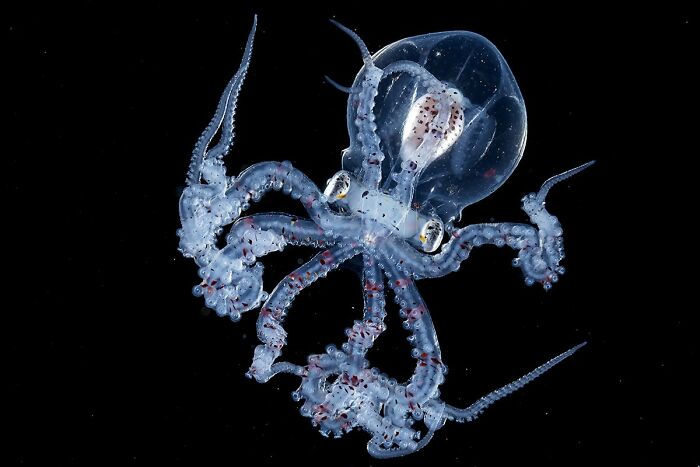
A stunning image captures the encounter; it shows the delicate and transparent baby octopus encasing its own brilliantly red brain, a sight few ever witness in the wild.
The Wunderpus octopus—called Wunderpus photogenicus, literally meaning photogenic wonder—was only first officially described by researchers in 2006. The animal is still understudied compared to other octopi.
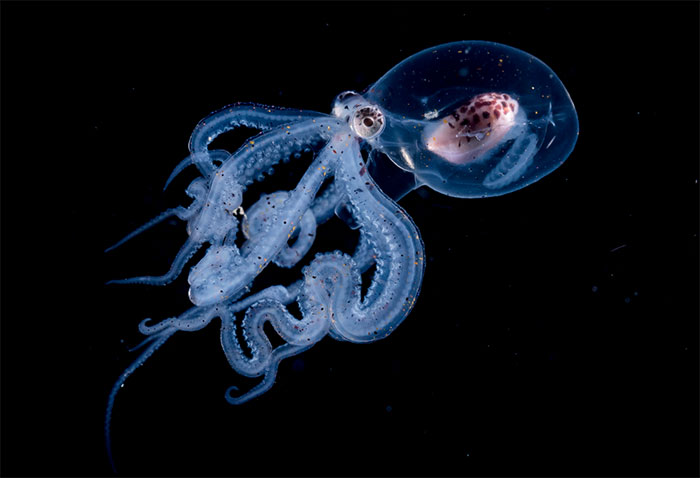
The avid diving photographer—who also works as a business consultant—knew he was seeing a rare phenomenon.
Luckily, he snapped the image before the young octopus could drift away.
Yung-sen was able to capture this elusive creature—and many others—by using the special techniques employed by blackwater divers.
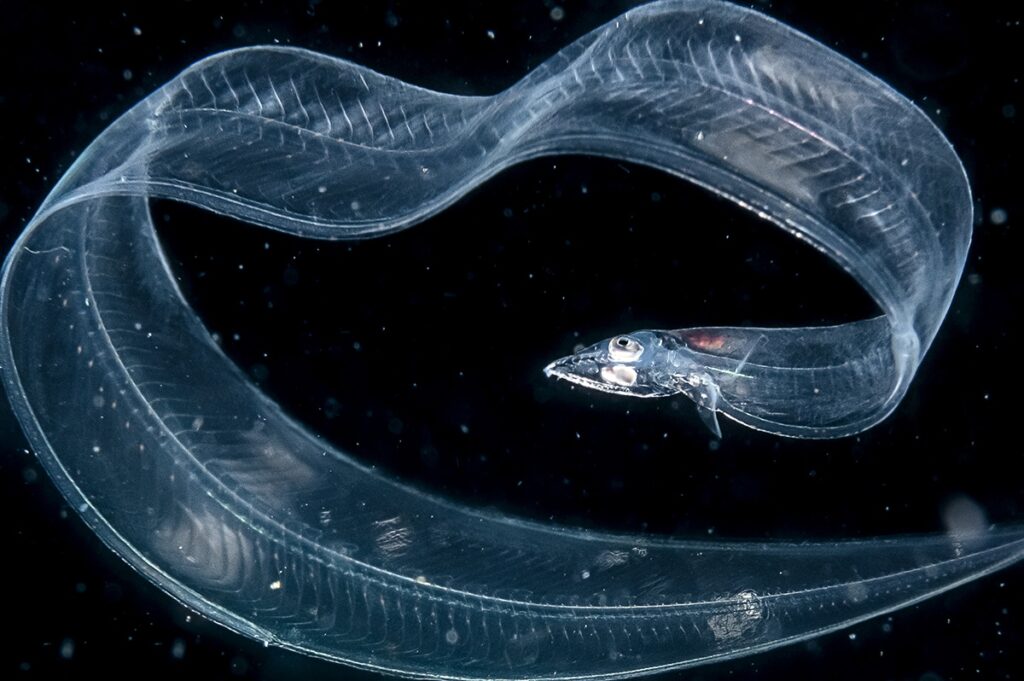
Lights on long lines are lowered first, then the divers descend. They remain tethered to the boat for safety and stability, as they sit and wait about 50 meters below the surface. The lights first attract microscopic zooplankton.
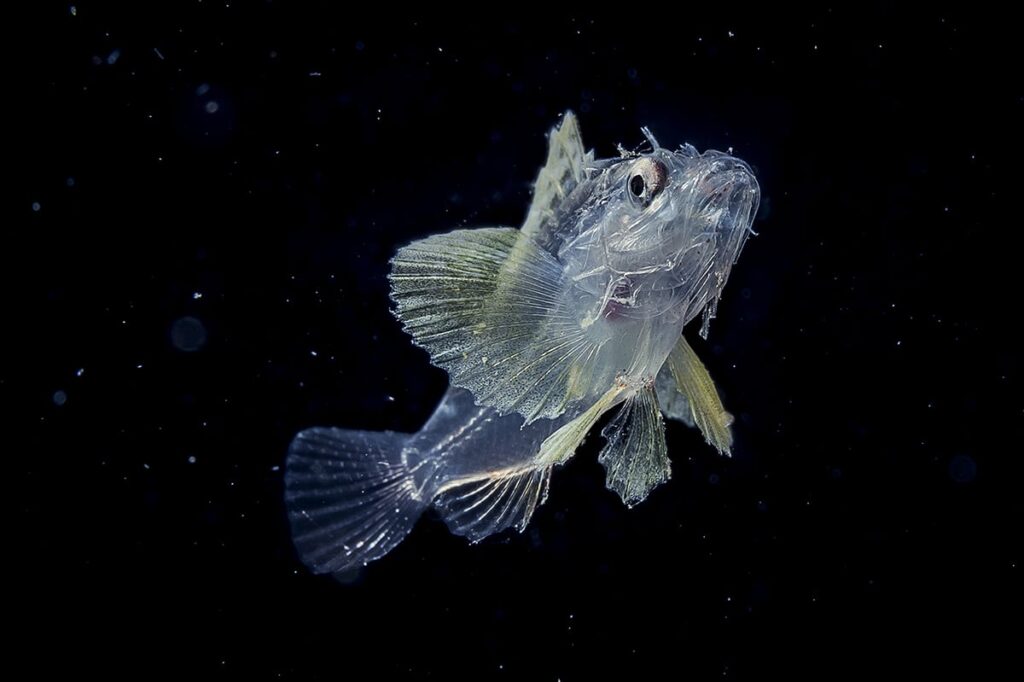
The plankton in turn draw small planktonic creatures which feed on the minuscule organisms. Jellyfish, squid, and larval (baby) fish drift in to feed under the suspended light.
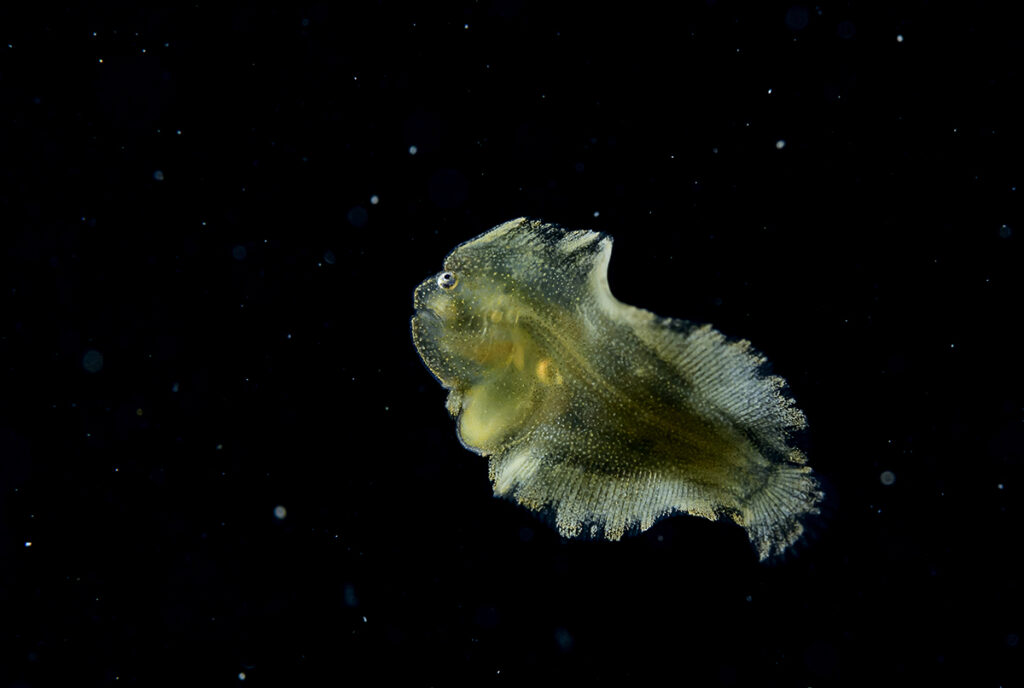
In blackwater photography images such as those of Yung-sen, the tiny marine life appears isolated against an endless expanse of darkness. Up and down are indistinguishable as the strange species hang suspended under the single lightsource.
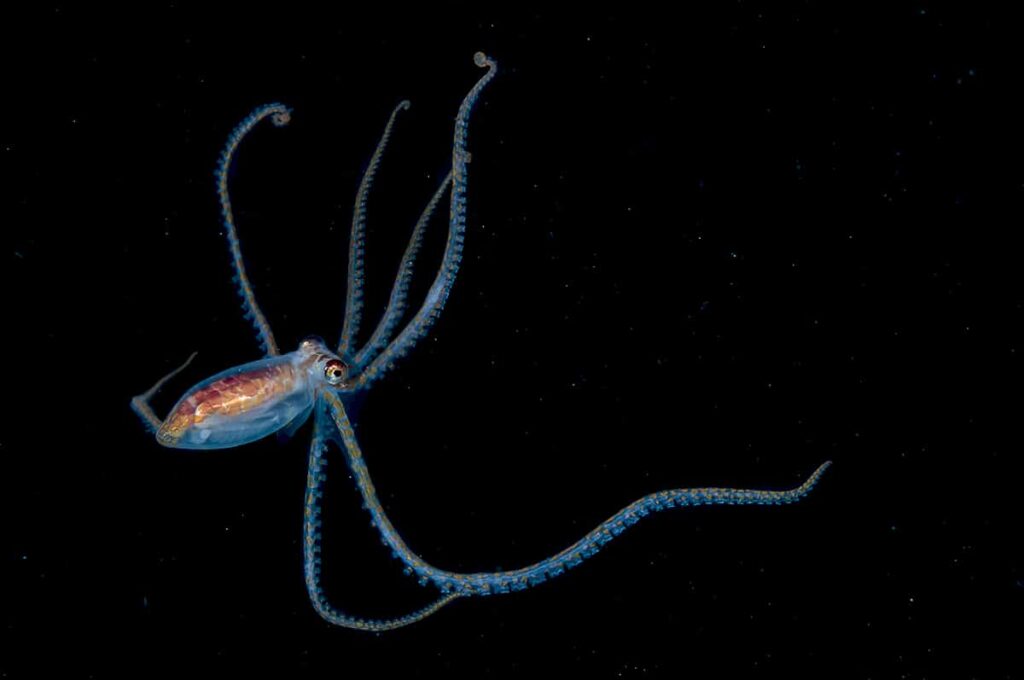
For Yung-sen, blackwater photography is a way to explore the limits of the natural world, unseen by many.
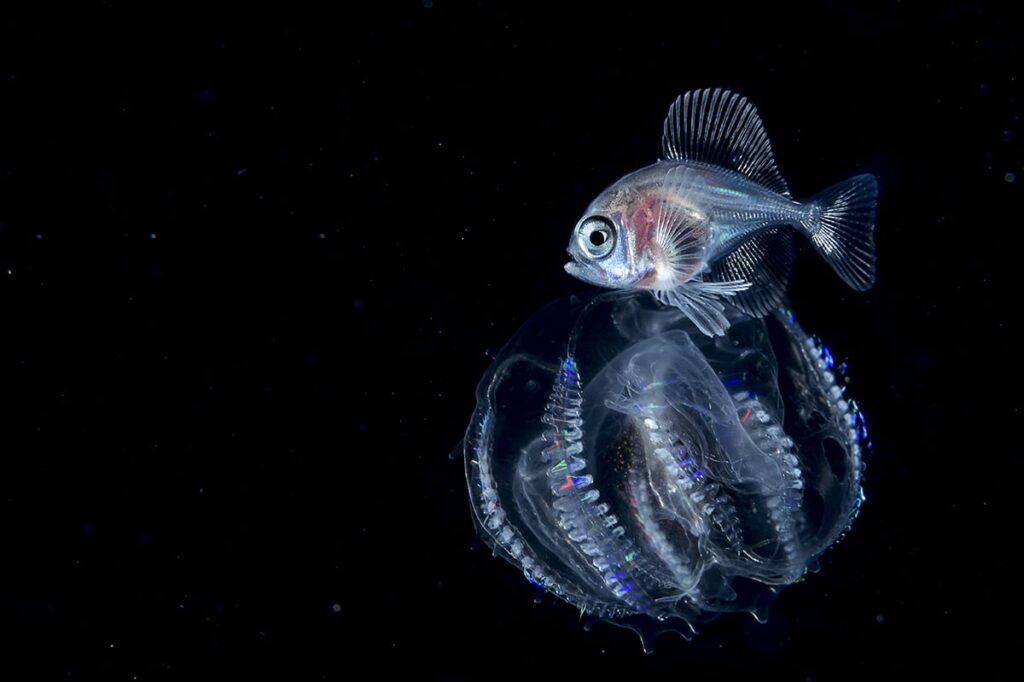
However, he is also an award-winning photographer in much shallower waters. The ambitious photographer won the Taiwan National Award in the Sony World Photography Awards for his image of migrating salmon in British Columbia, Canada. To get the shot, Yung-sen lay in the freezing river for hours.
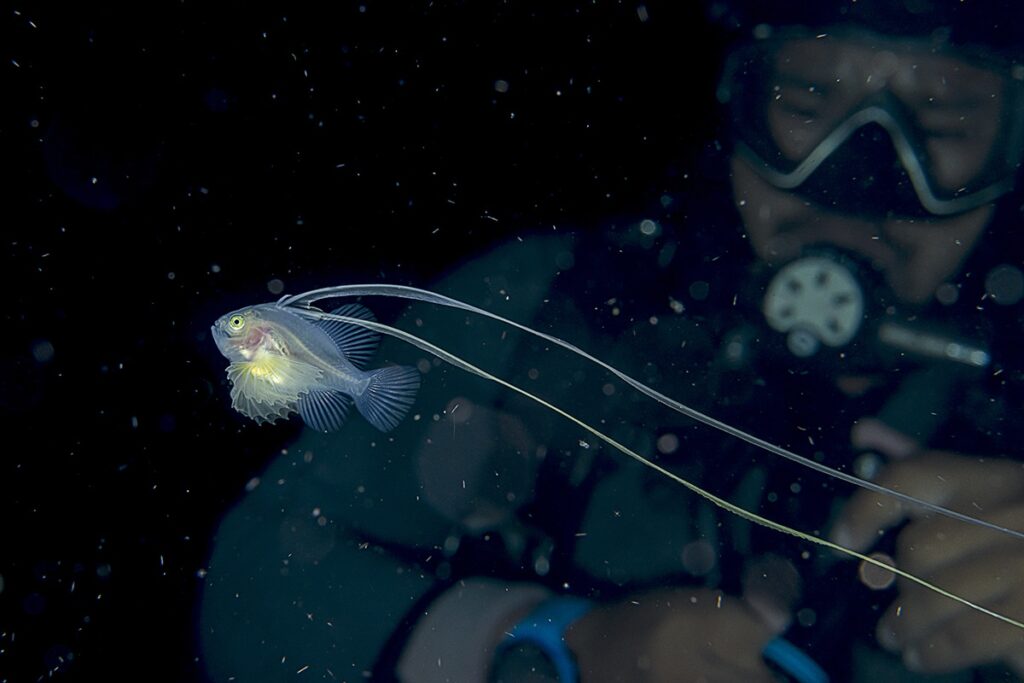
Whether he is lying in a river or deep sea diving, Yung-sen’s wildlife photography brings aquatic wildlife to a global audience.











